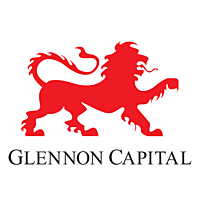3 Top Signs Of A Quality Business

ASX:GC1, ASX:CMI
Many investors talk about quality businesses and many, like us, seek to buy these businesses for our clients. But what exactly is quality, what are the signs to look for, and why is it so important?
Sustainability
Let’s begin by looking at a business through the lens of sustainability. In essence what are the chances that the business will be around and successful in 3 years’ time? What about 5 years? What about 10 years?
For many businesses sustainability has been proven over time and many businesses we look at have had long and successful operating histories. Others are only a couple of years into their journey. Importantly we are looking at excluding the flash in the pan type businesses from the mix. Those which are based on revenue and profits which, if they materialise at all, are unlikely to repeat.
A sustainable business will often have some predictability of cash flows. The range of potential outcomes will be narrower than for other businesses, which might either hit it out of the park or fall down in a heap. Recurring or contracted revenue is a useful feature here. If a business has locked in a revenue stream which will recur year after year, whether by contractual arrangement or by the strength of its industry or business model, the business is more likely to be sustainable. Companies, aware that investors appreciate this type of revenue, will often try to pass one-off revenue as recurring, so identifying truly recurring revenue is key.
Debt levels have a big impact on sustainability as well. Is a business carrying excess amounts of debt? The chances that a bad year or two will force the company to either raise capital or go out of business increases dramatically. With some highly cyclical businesses no debt at all might be most appropriate.
Barriers To Entry
Industry conditions also need to be considered, especially whether the industry a business operates in has barriers to entry. Where there are barriers to entry those barriers keep out unwanted competition. This may mean prices can remain higher for longer, resulting in higher revenue, or may result in less needing to be spent on marketing, resulting in lower costs. The chance that the business will fall prey to competition reduces as barriers increase.
Capital is rarely a barrier to entry however; if an industry is an attractive one to enter then capital will be found. The deployment of too much capital by both current competitors and future competitors can be an issue when barriers are low. More capital will often equal more supply of a particular product, higher input costs, and higher prices for potential acquisitions. The bigger the barrier, the less pressure new competitors will put on profitability for an industry. Bigger barriers lead to more confidence that current earnings, or the trajectory of growth, will continue.
Superior Management
Management running a business, especially in smaller companies, will be one of the key determinants of success. A driven and passionate entrepreneur with plenty of skin in the game and a track record of success will be able to drive revenue and minimise costs in a business. Often in smaller management teams, without the depth of talent that larger businesses can afford to hire, this key person is the decision makers across all business areas.
This means it is all the more important that apart from just being well rewarded for success that this person is aligned with shareholders. Where interests diverge too much, shareholders, especially in smaller companies, open themselves up to abuse.
This key person will also build the culture, good or bad, for the organisation as a whole. Is this a business that is striving to solve a real problem and reward shareholders while doing it, or a toxic climate resulting in poor customer service and abuse of a market position? The manager will drive good culture through the organisation, not least by hiring the sorts of people that will continue to enforce this culture.
But that isn’t it. While quality is important it is more useful in the context of the other elements of a complex puzzle: growth and value. It is the combination of these factors that will not only lead to buying a quality business, but making a profitable investment.
6 topics

Glennon Capital was founded in 2008 by Michael Glennon. Previously, Michael worked with some of the best institutional small company fund managers in Australia. In 2007, he received the IMCA Money Management Fund Manager of the Year (Small Cap)...
Expertise
No areas of expertise

Glennon Capital was founded in 2008 by Michael Glennon. Previously, Michael worked with some of the best institutional small company fund managers in Australia. In 2007, he received the IMCA Money Management Fund Manager of the Year (Small Cap)...
Expertise
No areas of expertise
